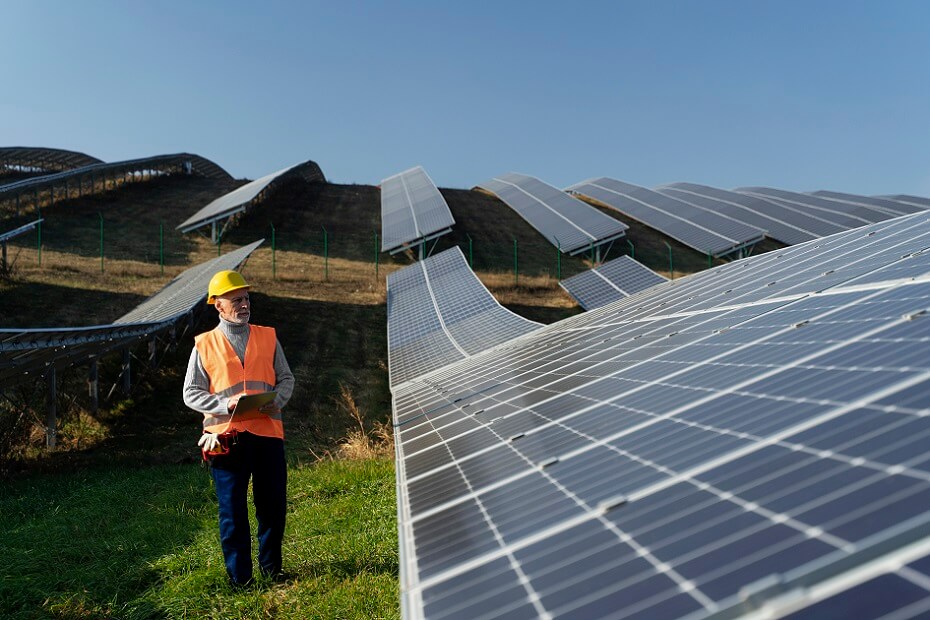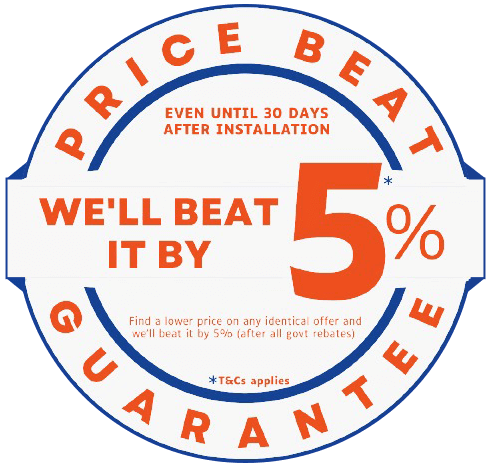Blog
 Apr08
Apr08
What is The Lifespan of Solar Panels? Life Expectancy of Solar Panels Explained
Homeowners, as well as businesses all around the globe, are becoming more concerned about living a more sustainable lifestyle. Going solar is the most cost-effective option to shift to green, renewable power while also drastically lowering, or perhaps eliminating, your monthly electricity expenses. It’s essential to comprehend the lifespan of solar panels before deciding whether a solar panels installation in Victoria is worth the investment for your house or business. So today, we’ll talk about the lifespan of a solar panel system, the pace at which it degrades, the precise maintenance that’s necessary, and other elements that impact the life expectancy of solar panels or restrict their operational efficiency.
What Is The Average Lifespan Of A Solar Panel?
In general, solar panels have a 25 to 30 year life expectancy, depending on the brand. Still, it’s extremely likely that your solar panels system will continue to provide power for much longer. If the useful life of the solar system is 25 to 30 years following installation, this doesn’t mean that it’ll stop producing electricity after that. The panels can continue to provide power for decades later; it’s just that the production capacity will decline to some extent. As solar panels age, they produce power at a relatively slow rate. This is referred to as degradation.
Solar Panel Degradation Rate
According to 2012 research by the National Renewable Energy Laboratory (NREL), the energy output of solar panels decreases by 0.8% each year on average. This rate of deterioration is termed the solar panel degradation rate. Though the rate of deterioration measure varies depending on the panel brand, premium manufacturers provide degradation rates to a bedrock of 0.3%. With the advancement in technology, a steady improvement can be seen in the degradation rates. Many modern panels have an annual energy output reduction of only 0.5%. What precisely does panel degradation rate imply? For the preceding example, a 0.8% deterioration rate indicates that your solar panel system will run at 99.2% of its initial output in year two and at 82.5% efficiency by the end of the useful life of 25-year. A relatively more reliable panel with a 0.5% degradation rate will roughly generate 87.5% electricity of its initial output after 25 years.
What Leads To Solar Panel Degradation?
Microcracks that occur in the solar cells’ silicon are amongst the most common reasons behind solar panel degradation. Electrical connections get damaged due to these small cracks, making energy generation more difficult. In addition, discolouration and adhesion concerns with junction boxes are also some issues that need to be considered. Solar panel degradation is caused by a number of causes, but the majority of them center on something that is hard to handle: the weather. Thermal cycling is a major issue that results in microcracks. When the temperature is high, practically all things expand; when the temperature drops, things contract. Unfortunately, solar panels are not immune to this cycle, and it is the continual thermal cycle that stresses the panels and causes cracks. Similarly, the panels can flex due to heavy winds, which is known as a dynamic mechanical load. Intense cold and hot temperatures, humidity, heavy snow, and components of the solar system with variable voltage potentials all lead to solar panel deterioration over time.
Is It Possible To Extend The Life Of Your Solar Panels?
Solar panels, in general, are incredibly long-lasting. Several solar panels are extensively checked to determine that they can withstand hailstorms, strong winds, and heavy snowfall. Furthermore, solar systems normally do not have any moving components and, therefore, require almost negligible maintenance. The key to guaranteeing the long life of solar panels is to collaborate with an eminent installer that delivers outstanding customer support. It’s also critical to get solar panels that come with a prolonged warranty. Several reputed brands offer solar panels with 10-12 years of equipment warranties that encompass environmental damages along with equipment defects. In addition to this, 25 years of production warranties are given that guarantee a certain amount of electricity generation over the said years. The proper maintenance of the solar panel system, on the other hand, might result in a reduced annual deterioration rate and extended panel efficiency.
Here are a few things you can do to extend the life of your solar panels:
Ask your service provider to inspect solar panels on a regular basis.
The best approach to ensuring that your solar panels have a long life is to have your solar system provider inspect them on a regular basis. A routine inspection might show possible problems such as unsecured racking, exposed wiring, and other issues to be concerned about. In addition to your solar panels, an examination of the other equipment included in a solar panel system, such as solar inverters and roof racking systems, can also be performed to help extend the life of the solar panel system.
Keep your panels free of debris and other potentially deleterious objects.
When your solar panels are initially installed, ensure that there are no huge trees nearby that might shadow your panels or drop branches on them. Solar panels will continue to provide electricity for several years as long as they are not physically damaged. You may also purchase specialized solutions to protect your panels from certain forms of physical harm. Solar panel critter guards, for example, can prevent animals from nesting underneath the panels, which can harm the panels and wires over time. Here are a few cleaning tips:
- Always begin by lightly cleaning leaves and dirt away from the panel’s surface. Ensure you always use a brush with gentle bristles.
- Use a mild current with a garden hose to rinse the panels.
- If a few obstinate places need to be cleaned thoroughly, wash them gently with warm water and a soft cloth to prevent scratches.
What Happens To Solar Panels After Their Useful Life?
Even though your solar system has surpassed its useful life, it can still produce power and save you some bucks by lowering your electric bills. This is because the panels will continuously generate electricity for several years, although at reduced efficiency. So, if you’re looking forward to harnessing the sun’s energy, give Sunburn Solar a call (1300 673 166). We’ll work with you to ensure that you have dependable, worry-free, sustainable energy for years ahead. Our staff of knowledgeable solar experts will review your energy requirements and assist you in selecting the best solar solution for your house or business.
© 2024 sunburnsolar.com.au. All rights reserved.


